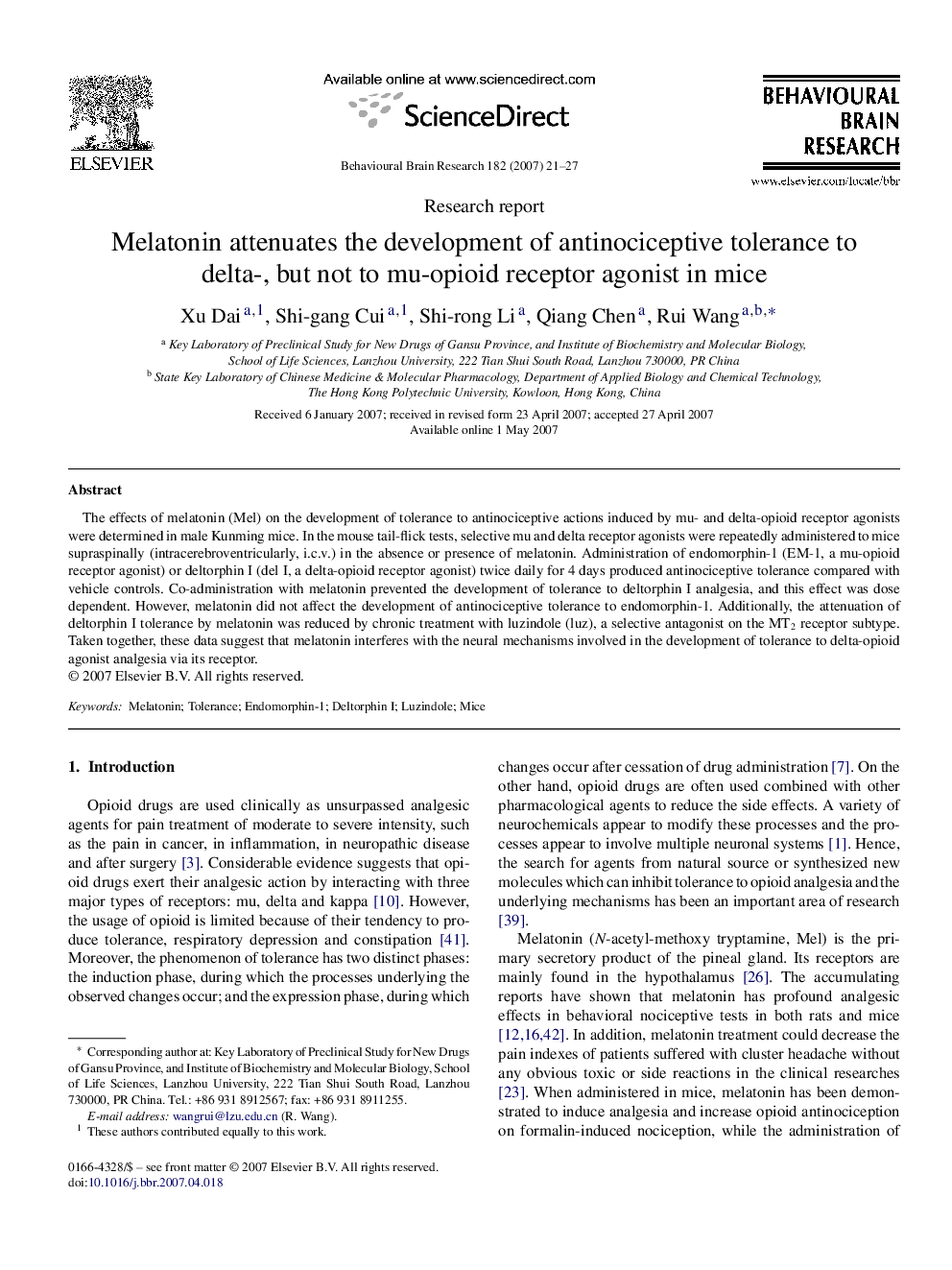| Article ID | Journal | Published Year | Pages | File Type |
|---|---|---|---|---|
| 4315580 | Behavioural Brain Research | 2007 | 7 Pages |
The effects of melatonin (Mel) on the development of tolerance to antinociceptive actions induced by mu- and delta-opioid receptor agonists were determined in male Kunming mice. In the mouse tail-flick tests, selective mu and delta receptor agonists were repeatedly administered to mice supraspinally (intracerebroventricularly, i.c.v.) in the absence or presence of melatonin. Administration of endomorphin-1 (EM-1, a mu-opioid receptor agonist) or deltorphin I (del I, a delta-opioid receptor agonist) twice daily for 4 days produced antinociceptive tolerance compared with vehicle controls. Co-administration with melatonin prevented the development of tolerance to deltorphin I analgesia, and this effect was dose dependent. However, melatonin did not affect the development of antinociceptive tolerance to endomorphin-1. Additionally, the attenuation of deltorphin I tolerance by melatonin was reduced by chronic treatment with luzindole (luz), a selective antagonist on the MT2 receptor subtype. Taken together, these data suggest that melatonin interferes with the neural mechanisms involved in the development of tolerance to delta-opioid agonist analgesia via its receptor.
